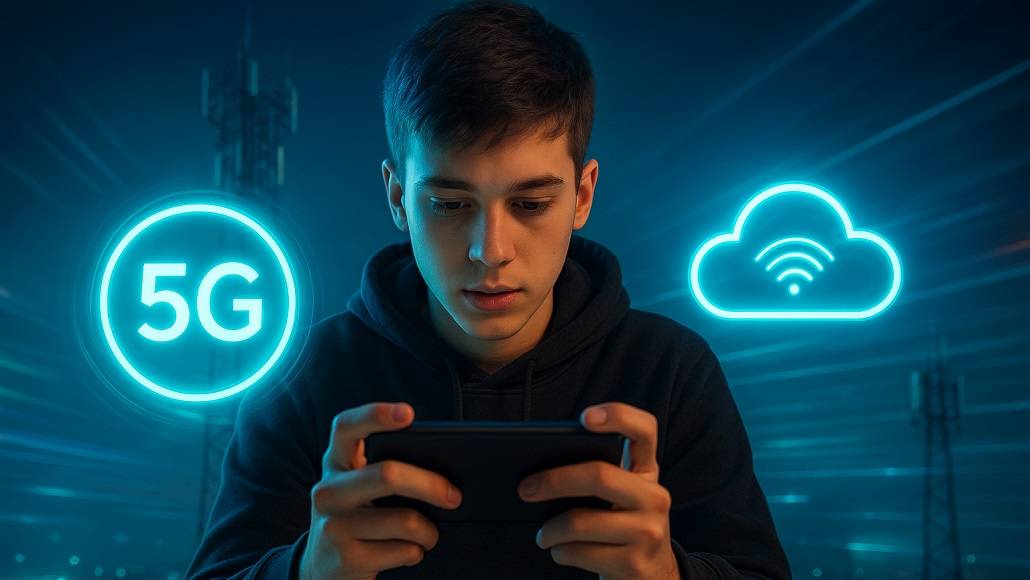Mobile gaming is no longer just a pastime for teenagers or tech enthusiasts. It has become a global phenomenon, reshaping industries beyond entertainment.
As of 2024, the global mobile gaming market was valued at $139.38 billion. This year, revenue from the global mobile game market is projected to reach a massive $126.06 billion.
The telecom sector, in particular, is feeling the profound effects of this rapid rise. Faster networks, higher data usage, and changing customer demands are pushing telecom providers to adapt. What once seemed like a niche interest is now a driving force behind infrastructure investments and new business strategies in the telecom sector. Here’s how.
More Hours Spent on Gaming
Mobile games are drawing people in for longer stretches than ever before. Telecom companies see this trend reflected in skyrocketing data usage, with many gamers streaming, downloading, and updating large files daily. This behavior is pushing providers to strengthen networks and ensure low latency, since even a minor lag can ruin a competitive session.
Yet these long hours are not always positive, especially for younger audiences. As TorHoerman Law notes, parents are alarmed by children losing sleep and neglecting schoolwork for video games.
Some families have even turned to courts, leading to video game addiction lawsuit filings. The conversation around gaming addiction is now a major part of how society views the impact of mobile games. Telecom has no direct role in this, but the sector should still keep a watchful eye over it.
Data Consumption is Driving New Telecom Plans
The average mobile game is far heavier on data than most people realize. Multiplayer titles constantly exchange information with servers, and many come with frequent updates.
This means that telecom providers must anticipate and manage traffic spikes during popular releases or tournaments. To address these challenges, carriers are designing new data plans tailored to gamers who expect uninterrupted connectivity.
Some providers now advertise packages highlighting low latency, higher speeds, and generous data allowances. This shift is not just about keeping customers satisfied. It is also about seizing a lucrative opportunity.
As mobile gaming grows, so does the demand for specialized services, giving telecom companies a reason to innovate. Partnerships with game developers are also emerging, with exclusive offers or free data incentives to attract subscribers.
The Push for 5G and Beyond
Few industries have benefited from the rollout of 5G as much as mobile gaming. The technology delivers the speed and reliability needed for high-quality, real-time gameplay. Thanks to 5G, response times in mobile gaming are as low as 5 milliseconds.
Telecom providers recognize this demand and use gaming as a key reason for promoting 5G adoption. For many players, switching to a network that ensures smooth gaming sessions has become a compelling motivation.
The telecom sector is already looking past 5G toward future developments like edge computing. By placing servers closer to users, companies hope to further cut latency and improve response times. For competitive gamers, these advancements could make the difference between victory and defeat.
A Surge in Cloud Gaming Services
Cloud gaming has entered the spotlight as more users seek console-quality experiences on their phones. Instead of relying on device storage, games are streamed through powerful servers.
This approach demands robust, high-speed networks capable of supporting heavy traffic without interruption. Telecom companies are therefore becoming essential partners in the delivery of these services.
For telecom providers, cloud gaming represents both a challenge and an opportunity.
On the one hand, it requires significant investment in network capacity. On the other hand, it creates new revenue streams through collaborations with gaming platforms. As cloud gaming becomes mainstream, telecom companies will find themselves central to its success.
Economic Impact on Telecom Infrastructure
The rise of mobile gaming has financial implications beyond consumer plans. Telecom providers are investing heavily in upgrading their infrastructure. More base stations, faster backhaul connections, and improved data centers are now critical.
These investments are not simply about keeping pace with gamers. They also ensure competitiveness in a market where customers will quickly switch providers if service fails.
The costs are significant, but so are the rewards. A telecom company that positions itself as gamer-friendly can capture a dedicated audience. In an era when gaming is deeply woven into daily routines, brand loyalty follows reliable service.
Frequently Asked Questions (FAQs)
Why is mobile gaming heavily reliant on the telecom sector?
Mobile gaming depends on fast, stable internet connections, which only telecom providers can deliver. From downloading games to running multiplayer sessions, every action requires a strong network infrastructure. Telecom companies provide the bandwidth, low-latency connections, and mobile data plans that make seamless gaming possible. Without telecom advancements, mobile gaming would face lag, disconnections, and limited accessibility.
Is 5G infrastructure good enough to support mobile gaming?
Yes, 5G is a game-changer for mobile gaming. It offers ultra-low latency, higher speeds, and more reliable connections compared to 4G. This makes cloud gaming, AR/VR experiences, and real-time multiplayer smoother. However, coverage is still expanding, so the experience depends on your location. In areas with mature 5G networks, gaming performance is significantly improved.
How can you avoid using too much mobile data when playing games on your phone?
To reduce mobile data use, download updates and large files over Wi-Fi, not mobile networks. Many games allow you to adjust graphics or limit background processes, which also lowers data consumption. Some telecom providers offer “gaming packs” or zero-rated plans that reduce data costs. Tracking your phone’s data usage settings helps you avoid surprises in your monthly bill.
Mobile gaming’s growth is rewriting the rules for the telecom sector. From higher data consumption to the race for better infrastructure, the effects are undeniable. The bond between these two industries will only deepen as technology continues to evolve, proving that games are far more than just play.




















